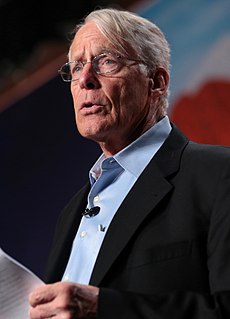A Quote by George Packer
Over the years, America had become more like Wal-Mart. It had gotten cheap. Prices were lower, and wages were lower. There were fewer union factory jobs and more part-time jobs as greeters.
Related Quotes
I have had the view that cutting wages is not the path to prosperity, and one of the great myths propagated about my attitude to industrial relations is that I believe in lower wages. I've never believed in lower wages. Never. Never believed in lower wages, I've never believed in lower wages as an economic instrument.
Wal-Mart's size and scale is so vast they literally have the ability to change the face of the entire country. If Wal-Mart were to make a decision tomorrow to refuse to sell a single product made with partially hydrogenated oils, for example, we'd probably see rates from heart disease decline a few years later. That's how powerful Wal-Mart is.
Historically, labor unions arose when people had gotten a taste of a different lifestyle and were willing to pay a lot more for their basic livelihood and had gotten into a fix they couldn't get out of - because they had accepted the unacceptable to begin with. Accepting something you have to form a labor union to fight after the fact only tells me that people were acting against their own best (or even good) interests for a long time. I don't see any rational, coherent explanation for this sort of behavior in humans, but it's all over the place.
Would you rather have cheap, subsidized - illegally subsidized - goods dumped into the Wal-Mart and not have a job and not have your wages go up in 15 years, or would you like to pay a little bit more - not much - a little bit more, have a job, and have your wages going up? I think the American people are going to make that choice.
Acceptable rules of conduct were suspended when it came to the spoon shortage. The deficit had gotten so bad that prices were all but unaffordable, and dynastic spoon succession had become a matter of considerable interest. Spoons were even postcode engraved and carried on one's person to eliminate theft, and good table manners, one of the eight pillars upon which the Collective was built, had been relaxed to allow tea to be stirred - shockingly - with the handle of a fork.
People were actually 6 times more likely to buy a jar of jam if they had encountered 6 than if they encountered 24, so what we learned from this study was that while people were more attracted to having more options, that's what sort of got them in the door or got them to think about jam, when it came to choosing time they were actually less likely to make a choice if they had more to choose from than if they had fewer to choose from.







































